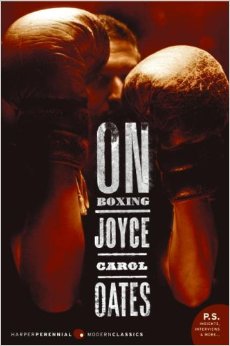On Boxing: Joyce Carol Oats
/ I just finished reading On Boxing
I just finished reading On Boxing , by Joyce Carol Oats. It is a fun read. She normally writes fiction, but this is a tribute to her life long love of boxing. Her love of boxing is in a sense a tribute to her bond with her father, who initiated her into its beauty.
The book jumps right into philosophy and has great stuff like this:
The old boxing adage--a truism surely untrue-- that you cannot be knocked out if you see the blow coming, and if you will yourself not to be knocked out, has its subtler, more daunting significance: nothing that happens to the boxer in the ring, including death--"his" death--is not of his own will or failure of will. The suggestion is of a world-model in which we are humanly responsible not only for our own acts but for those performed against us.
And here, after pointing out how often boxing fights were illegal in times passed, and thus happened in-between states, in outlaw territory, or on islands with performers and spectators both risking arrest:
And boxers have frequently displayed themselves, inside the ring and out, as characters in the literary sense of the word. Extravagant fictions without a structure to contain them.
She has much to say about notions of "primitive" and the intensity of emotions:
Those whose aggression is masked, or oblique or unsuccessful, will always condemn it in others.
After putting both feet forward into philosophy she wanders around into the lives of boxers, and major events in boxing history. Some of the essays in this book are informative, in depth reportage, but they are also languid, timeless; as a reader one gets the sense that she deeply savors hanging out in the world of boxing.
I couldn't help thinking of Elaine Scary's comment in On Beauty and Being Just
that one of the errors about beauty she made in her youth was thinking that boxing was not beautiful. I wonder if Joyce Carol Oats helped change her mind?
On Boxing includes a number of enticing and complex book reviews (more books added to my reading list) and she is not at all shy about discussing racism and, in the final essay, fascism. Check it out.




